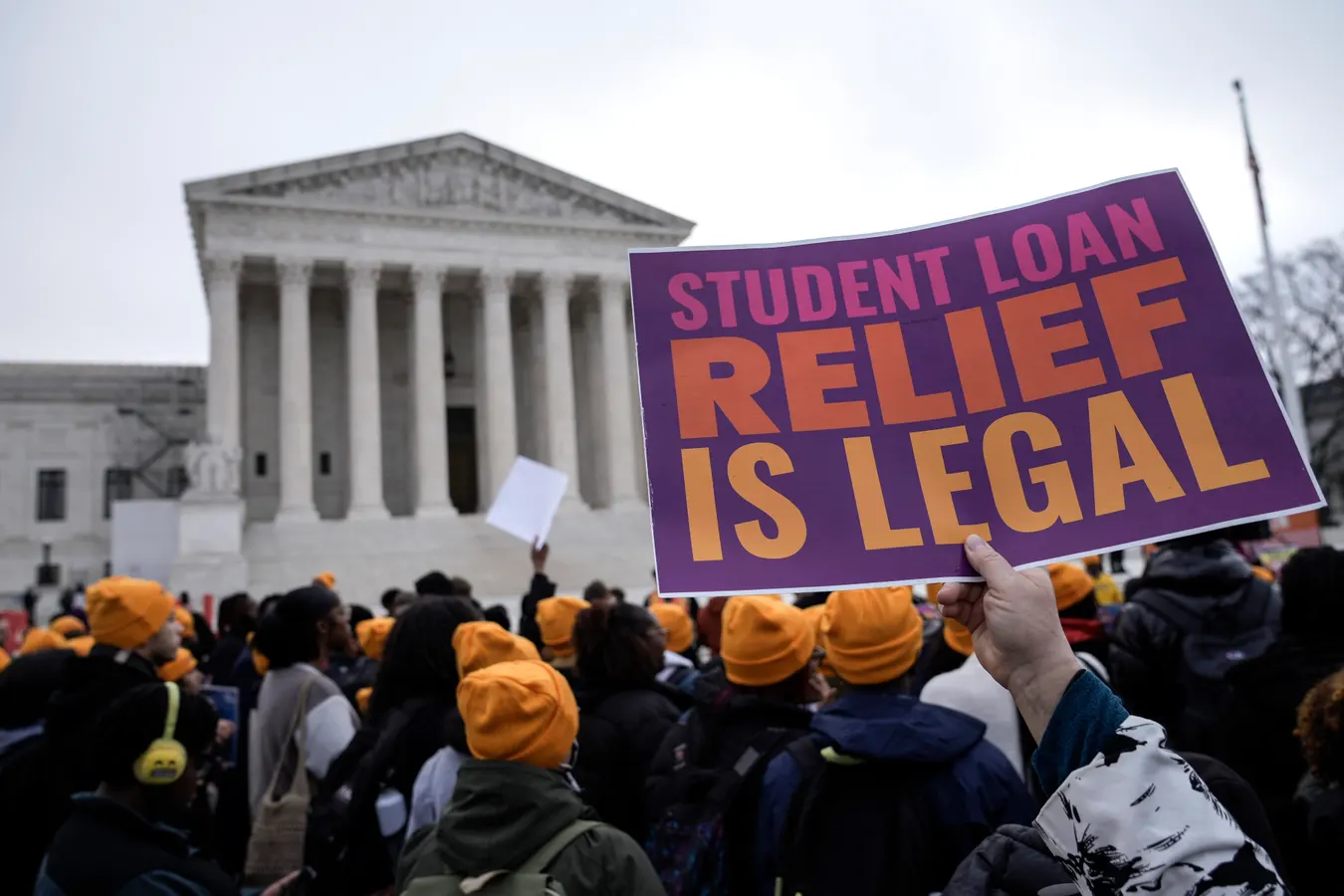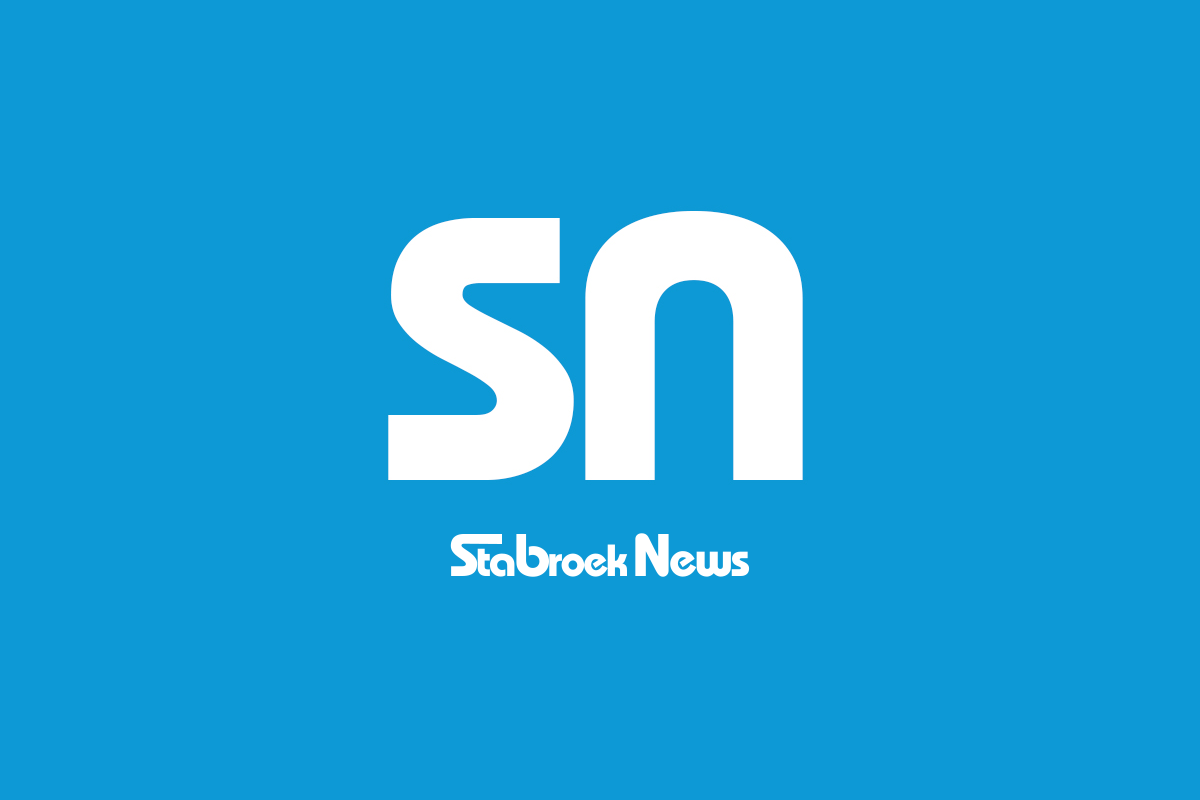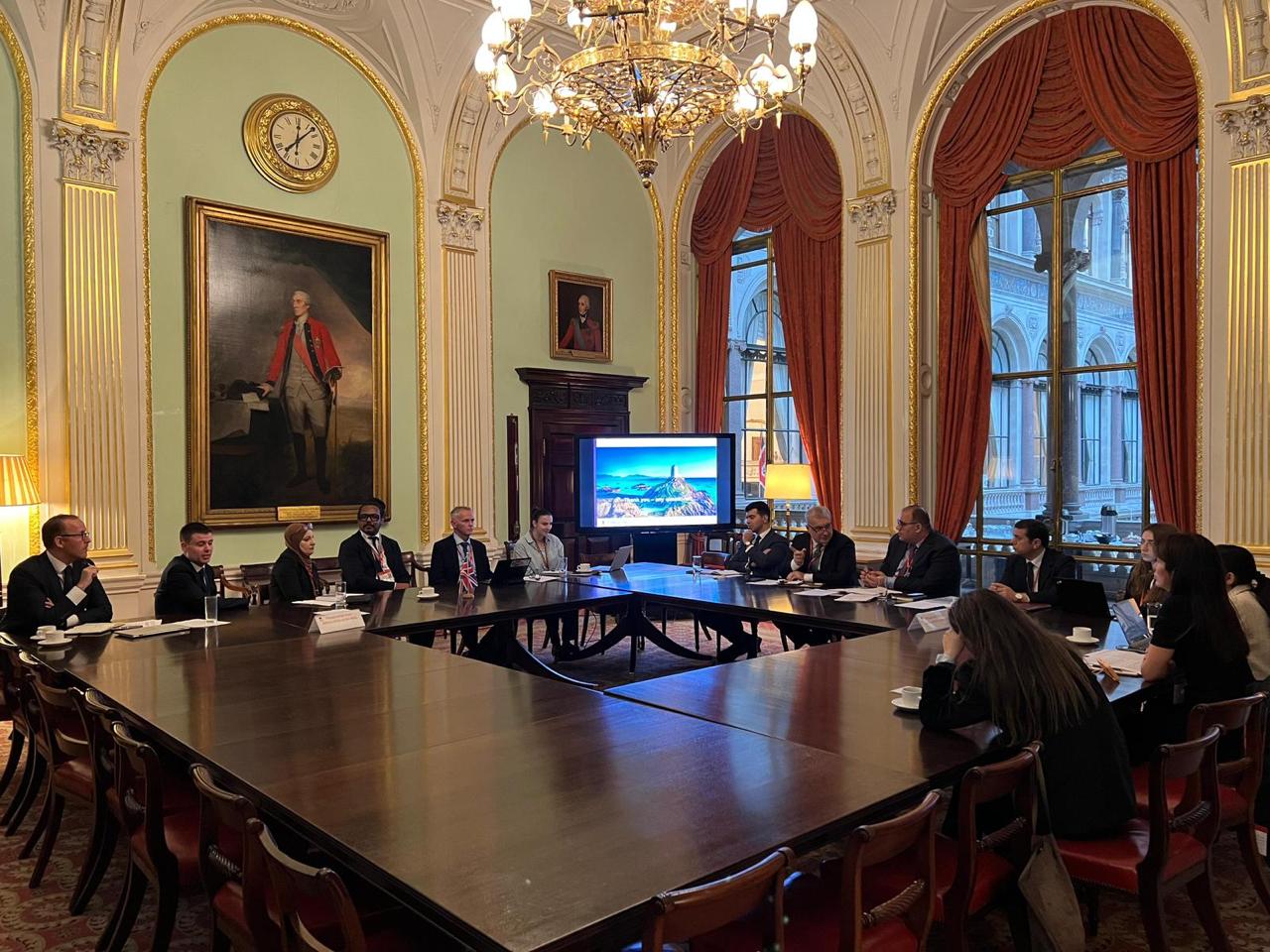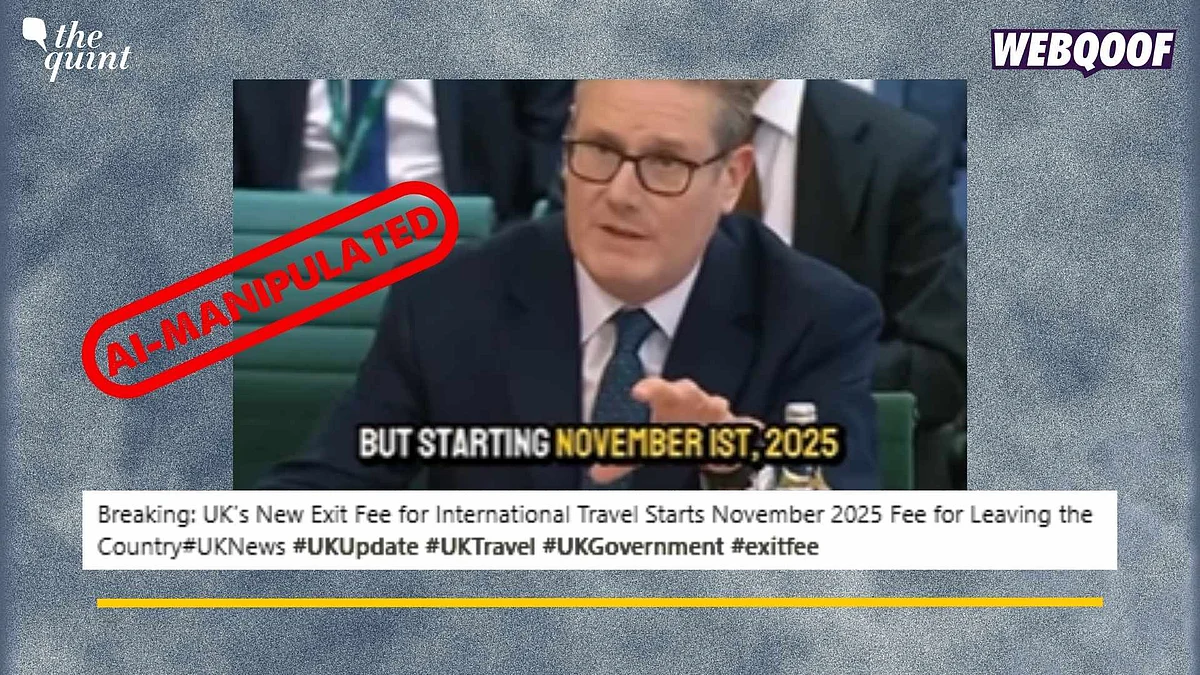Copyright Forbes

A broad group of litigants opened a new front in the war over student loan forgiveness this week, with the future of PSLF, popular federal student debt relief program, on the line. A coalition of Democratic-led states, along with several groups of nonprofit organizations, labor unions, and municipalities, filed three legal challenges this week seeking to prevent the Trump administration from implementing new rules that could kneecap Public Service Loan Forgiveness. PSLF is a popular program designed to incentivize working in lower-paying public sector and nonprofit jobs by offering federal student loan forgiveness after 10 years in repayment. The Trump administration wants to enact new regulations that would give the Department of Education sweeping authority to make some qualifying PSLF employers ineligible for the program if they engage in certain activities. Here’s what the new legal battle means for PSLF and for student loans, and what borrowers should know. PSLF Regulations Could Revoke Student Loan Forgiveness Eligibility The Department of Education’s proposed new rules, which were formally published last week (but aren’t set to go into effect until next summer), would give the federal government the power to decide that employers can no longer qualify for PSLF if they engage in certain specified activities. If an employer no longer is eligible for PSLF, borrowers cannot receive credit on their student loans toward the 10 years of employment they would need to qualify for loan forgiveness. Under the regulations, the department could determine that any qualifying PSLF employer, whether it is a nonprofit organization or a state or municipal government, is ineligible for PSLF if it is engaged in certain enumerated activities such as “aiding and abetting violations of Federal immigration laws,” “supporting terrorism,” “engaging in a pattern of aiding and abetting illegal discrimination,” “engaging in a pattern of violating State laws,” or providing certain medical services to transgender youth. “These regulations ensure that taxpayer dollars are not misused by preventing PSLF benefits from going to individuals employed by organizations that have a substantial illegal purpose,” said the department in a summary accompanying the publication of the regulations in the Federal Register last Friday. “The revisions strengthen accountability, enhance program integrity, and protect hardworking taxpayers from shouldering the cost of improper subsidies granted to employees of organizations that undermine national security and American values through criminal activity.” MORE FOR YOU Since it is the employer whose student loan forgiveness eligibility would be targeted under the regulations, large numbers of individual borrowers could be affected. Borrowers could be effectively blocked from PSLF if the Department of Education revokes their employer’s eligibility for the program, regardless of their actual job duties (the department argues that if that happens, impacted borrowers should just find a different job with a new qualifying employer). Challengers Argue New Student Loan Forgiveness Rules Are Illegal Under PSLF Statute In the three lawsuits filed this week, the challengers argue that given the broad and vague language in the regulatory text, the new rules would effectively allow the federal government to use PSLF as a tool of coercion and retribution against political opponents of the Trump administration, including nonprofit organizations and Democratic-led state and city governments that oppose administration priorities. “In an attempt to target organizations and jurisdictions whose missions and policies do not align with its political positions on immigration, race, gender, free speech, and public protest, the Trump-Vance Administration has weaponized the PSLF program in a way that defies how Congress designed,” reads the complaint filed by the National Council of Nonprofits and other nonprofit and labor groups. “The only forms of ‘illegality’ named” in the regulations “are a cherry-picked list of this Administration’s most disfavored groups and activities, including support for immigrants, gender affirming care, diversity, equity, and inclusion initiatives, and political protest,” reads a separate complaint filed by a coalition of Democratic states, including New York and Massachusetts. “In seeking to crack down on specific activities disfavored by this administration, the true intent behind the Rule is clear. The Department seeks to chill the activities of public service employers by discouraging their employees from what it deems objectionable forms of public service. To accomplish this goal, the Rule purports to employer the Department of Education to serve as a roving enforcer of the Administration’s animus by stripping PSLF eligibility from employers whose actions it dislikes. And it does so openly: the Department admits that the Rule ‘is focused on specific illegal conduct that’ President Trump ‘has determined that the Department should focus on’ and that he ‘has identified as being of greatest concern.’" “Congress did not delegate authority to the Department of Education to exclude borrowers who work in public service jobs from PSLF or to narrow the statutory definition of ‘public service job,’” said the Robert F. Kennedy Center for Justice and Human Rights, along with three other nonprofit organizations, in a third Complaint filed on Tuesday. “Although none of Plaintiffs’ activities violate any federal or state laws, Plaintiffs can have no certainty about whether the Secretary will determine their activities have a substantial illegal purpose within the meaning of the Rule, or will investigate their work and require them to prove the lawfulness of their work.” All three lawsuits take the position that the Department of Education has no authority to enact these restrictive regulations, as Congress created the PSLF program through statute and clearly established the definition of a qualifying employer. The department has no legal basis, the challengers argue, to redefine who is eligible for student loan forgiveness under the program. The challengers also contend that by targeting employers based on their mission or activities that the department is violating the organizations’ constitutional rights of free speech and assembly, and will harm their ability to recruit and retain qualified employees, as the PSLF program serves as a significant incentive for many individuals to choose to work in lower-paying jobs in the nonprofit and government sectors. Worst-Case Scenario For Student Loan Forgiveness Under PSLF In a worst-case scenario for borrowers concerned about the new PSLF restrictions, the new legal challenges could fail in court, and the rules restricting student loan forgiveness would go into effect next summer. Once the regulations are in effect, the Department of Education can start the process of revoking PSLF eligibility for certain employers if officials make the determination that their activities have a “substantial illegal purpose.” However, even in that worst-case scenario, student loan borrowers should keep the following in mind: While student loan borrowers would not have any recourse of right to appeal, employers would. It may be difficult for smaller organizations with minimal resources to fight adverse PSLF determinations, but larger employers (such as state and city governments, and major national nonprofit organizations) may be able to mount individual challenges. To put it simply, the Department of Education may not have the final say on PSLF eligibility for specific employers. The Department of Education would not be able to claw back any PSLF credit toward student loan forgiveness already earned by a borrower at the time of an eligibility determination. “Borrowers will receive full credit for work performed, until the effective date of the Secretary’s determination that an employer is no longer a qualifying employer under the rule,” clarified the department in commentary accompanying the regulations. Because the Trump administration is using the regulatory process to establish these new rules (rather than Congress passing legislation to codify the changes), a future administration could use the same process to roll back, weaken, or fully repeal these regulations, or reverse individual employer determinations of PSLF eligibility. Best-Case Scenario For Student Loan Forgiveness Under PSLF In a best-case scenario for borrowers, a federal court could block the new regulations, even before there has been a final decision on the new lawsuits. The challengers will likely soon file a motion for a preliminary injunction, which is a request for emergency relief to prevent the regulations from going into effect while the litigation process plays out. That would preserve the status quo and prevent any employers from becoming ineligible for student loan forgiveness under PSLF while the lawsuits are pending. Notably, Republican-led states used this same strategy to successfully block Biden-era student loan regulations, including two mass student loan forgiveness initiatives as well as the SAVE plan (which remains blocked due to an injunction). The legal arguments in the current lawsuits over the Trump administration’s proposed PSLF restrictions echo, at least in some ways, the arguments made by Republican-led challenges to Biden-era programs: that the Department of Education exceeded its authority in trying to create or change student loan programs in ways that Congress did not authorize by statute. Bottom Line For Borrowers Concerned About Student Loan Forgiveness



